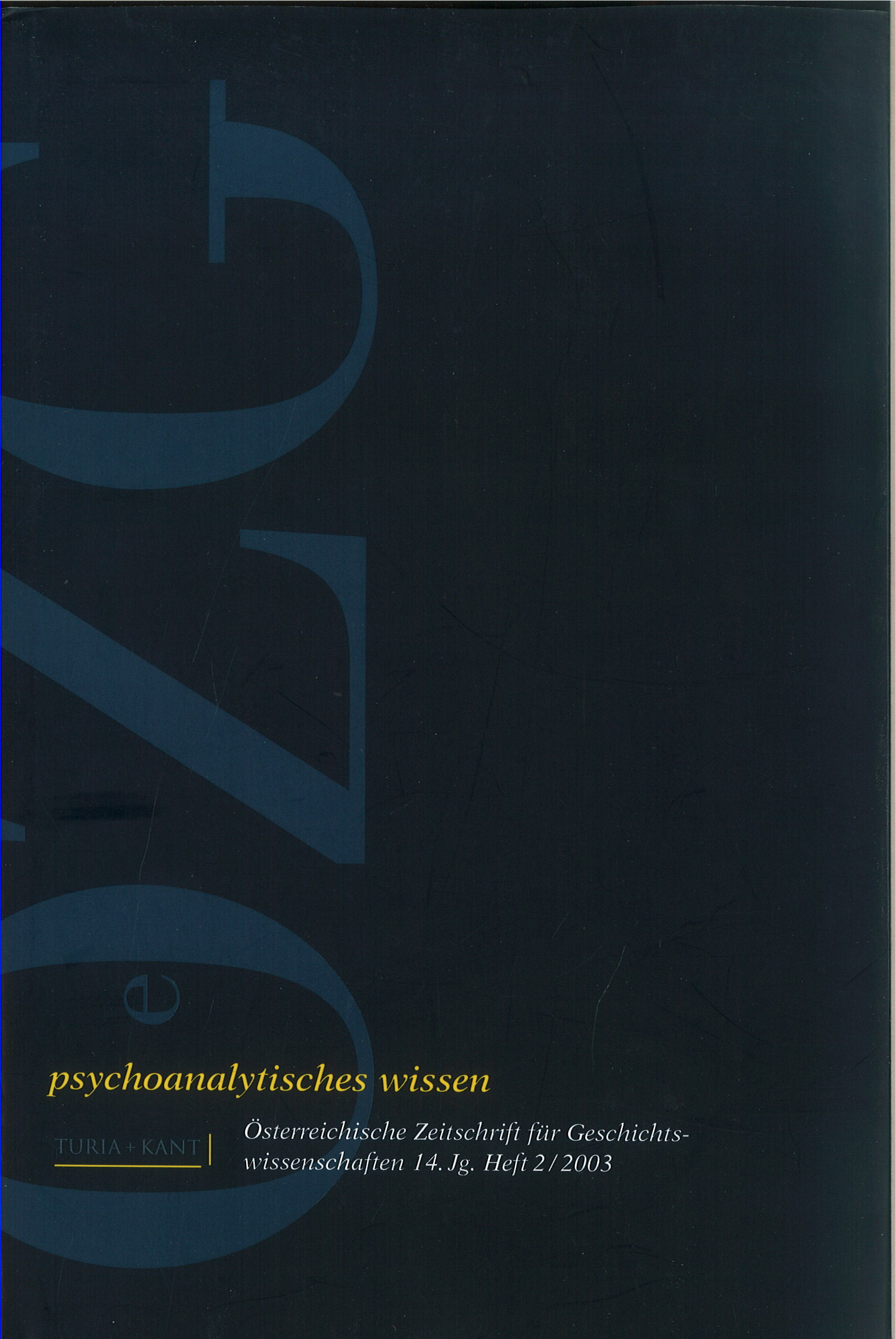»Verschiedene Schicksale«. Das Frühwerk Jacques Lacans und die Phänomenologie
DOI:
https://doi.org/10.25365/oezg-2003-14-2-6Abstract
Many of the methodological restrictions associated with the traditional history of ideas can be overcome by focusing more closely on the history of the material substrata which served to transmit knowledge. This argument is substantiated here with respect to the relationship between the early work of Jacques Lacan (1901-1981) and the disciplines of phenomenology (E. Husserl, M. Seheier), phenomenological psychopathology, and dynamic psychiatry (K. Jaspers, E. Minkowski, E. Kretschmer). By examining in detail the genesis of Lacan's 1932 doctoral thesis on paranoia and related texts, one realizes that it was not so much Husserl, but rather Scheler's book on the nature and forms of sympathy (1913/1923) which contributed most to the elaboration of Lacan's later theory of the imaginary. lt also becomes evident that Lacan's incorporation of certain German philosophical terms (Ausschaltung, Aufhebung) into his French writings was not devoid of productive misreadings (»Aufhaltung phenomenologique«, »Aufhebung husserlienne«). Hence, it can be suggested that both Lacan's psychoanalytic work and also his early texts are rooted in a space >in-between languages< (French and German).


